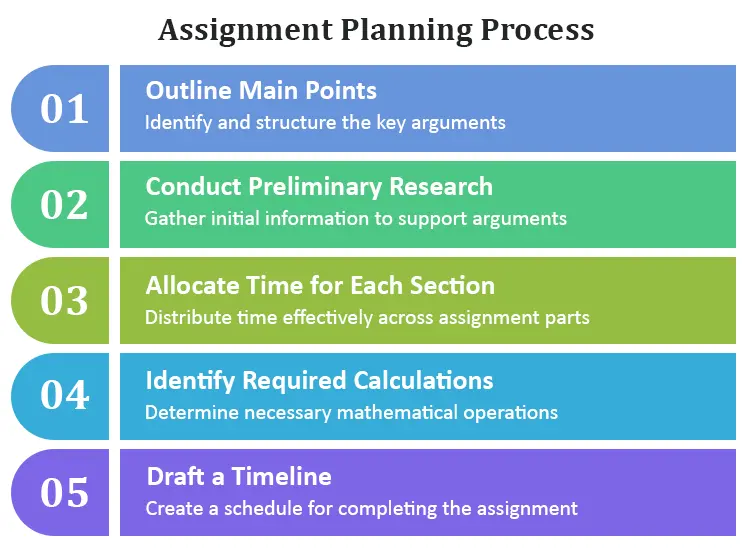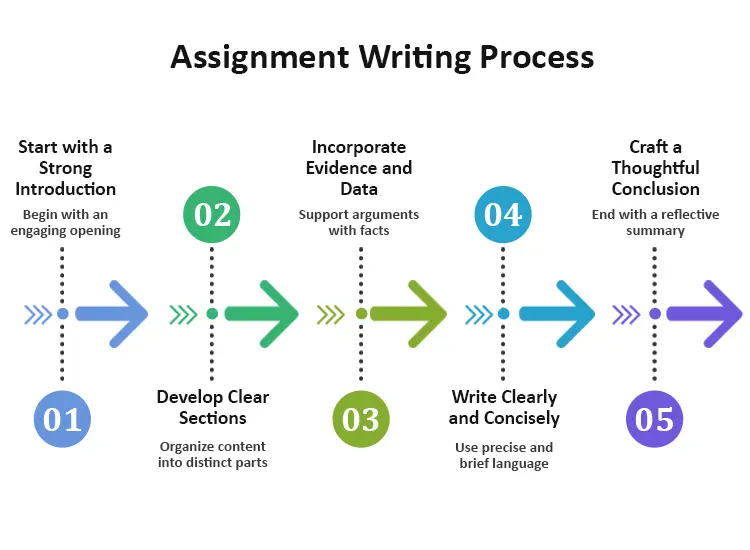Assignment Tracker: The Ultimate Guide for Students
Struggling to manage assignments? This guide shows how to use assignment trackers to boost organization, meet deadlines, and reduce stress.
Struggling with physics assignments? You are not the only one! Quite a number of students are struggling to deal with the intricacies of physics whereby abstract theories are confronted with practical applications. These are not only the assignments to be done, but also an excellent occasion to test your conceptual knowledge, improve your mathematical skills, and develop your ability to properly explain scientific concepts. Nevertheless, it is easy to be confused with such aspects as motion, energy, and thermodynamics. Some of the problems faced by many students include complex mathematical derivations, a very steep learning curve in theoretical concepts and the ever-impending deadline anxiety.
We are going to de-mystify the procedure of writing a physics assignment in this guide by listing a detailed step-by-step procedure. We will discuss some very important suggestions to understand the tough notions and the frequent errors that should be avoided and even propose some creative ways to improve your work. Be it that you are facing a certain issue or just want an extra push to get you into better standing in your overall performances, this post will provide you with what you require to approach your physics assignments with confidence.
Students often struggle to understand the basics of physics assignments and wonder “how to write a physics assignment.” The initial important step towards writing a good physics paper is to understand the assignment. It makes your approach basis and makes you consider the requirements effectively. These are the main points to bear in mind:
When you spend time comprehending the assignment, you put yourself in a better position, making your work better organized and clearer.
Developing a plan and scheduling your tasks should be regarded as a significant step that can provide a lot of help regarding the quality of your work and reduce stress before the deadline. A proper outline of plan will organize your study, writing, and even revision, making you not lose track. Another one of the most important aspects of planning an assignment is to be informed about the process of your assignment which can be done through the Assignment Tracker. Here are some main things, which will help you planning your physics assignment:

Begin with the rough draft where you develop the central ideas that you would like to cover. This could be covered with theories, laws or certain issues that are connected to your topic. This method of organizing your thoughts will assist you in setting a logical flow of your assignment.
To collect information on your topic, find appropriate textbooks, academic papers and internet materials. Write down any important information and facts which are relevant to your outline.
Dividing outline into parts and setting a timespan to accomplish part will help. This may assist you to use the time effectively and guarantee that you will spend enough time on complex matters.
In the event that you need to carry mathematical derivations or experiments in your assignment, list those calculations and verify that you know the formulas and the procedure involved. In some ways, writing about experiments resembles biographical storytelling in essays, since both require connecting facts in a meaningful way.
Design a schedule showing milestones of every phase of the assignment, where you will research, do a draft, edit and final submit. Adhere to this timeline to keep moving forward.
Taking the time to plan your work in advance, will establish a solid foundation on which to build your coherent and well-reasoned physics assignment meaning that when it comes to write the hard work will pay off.
The research and data collection entail essential phases in the process of writing a successful physics assignment since research forms the basis on which evidence and theoretical arguments rest. These steps can be taken systematically in order to make your work of better quality and more credible. Some of the major steps to keep in mind are as follows:
Your willingness to spend some time on good research and proper data gathering will help you establish strong foundation to your arguments, and your physics assignment will become not only informative but also interesting.
In the writing process, all your planning, researching, and thinking will converge and you will end up with a single piece of work. That may sound daunting but then with a structured approach, you will come up with a neat and comprehensive physics piece of work.

In your introduction, you should state the purpose of your assignment, list your major topics that you are going to discuss, and attract the attention of the reader. You should explicitly state the problem or question, and summarize your thesis or main argument.
Structure your assignment into clearly delineated sections that adhere to the plan you drew up initially. A section should cover each distinct area of the topic, e.g., theory, derivation, experiment. Employ headings and subheadings to guide the reader through your material.
When you are elaborating on each of these points bring out data, examples, and quotes of your research. It strengthens your points and meaning that you understand the topic well. It is important that you elaborate on the significance of each data or formula in a manner that may be grasped even by those who are not so much conversant with a specific detail.
You need to be able to bring out your ideas in a simple clear manner in your writing. Avoid abstraction, jargon, etc., when you can, and when you can not, then when you use technical language, be sure you define it the first time you use it so it makes sense.
Your conclusion should summarize what the main findings of the assignment were and it should also restate the significance of the topic. The conclusion is also an opportunity to consider what was learnt from the assignment and indicate directions for future research and/or exploration.
When you carefully follow these steps with your assignment, you will create a well - structured and cohesive paper about physics that shows your understanding of the content as well as the requirement of the assignment.
Mathematics and diagrams are important parts of your physics assignments aimed at achieving clarity and precision. The following are some practical ideas and approaches when including Mathematics and Diagrams in your assignment.
With these pointers, together you will be able to develop a physics assignment that combines mathematical precision and visual clarity, clarifying complex ideas.
Reviewing and editing are both important aspects of the writing process and can really help you improve your writing in a big way. Here are some important things to consider:
Clarity, coherence and quality are further clarified, strengthened and improved in the writing by concentrating on the reviewing and editing process.
In cases of physics assignments, staying away from these common mistakes is very important for getting the right results and clear understanding.
| Common Mistake | Description |
| Neglecting Units | Excluding or changing units can lead to faulty conclusions. Always check for consistency with units. |
| Incorrect Equation Use | Misusing formulas can happen because of failing to understand the concepts. Be sure that you understand the theory before trying to use the equations. |
| Inconsistent Formatting | Using differing fonts, sizes or spacing can give it an unprofessional look. Keep the same format. |
| Plagiarism | Not giving proper credit is unethical, and can have severe and real consequences. Cite properly. |
| Poor Time Management | Procrastination leads to rushing and mistakes. Devise a plan that allows you enough time for revisions. |
While keeping these mistakes in mind, you can increase the accuracy and quality of your physics assignments, which will improve your understanding and ultimately your grade.
Effective time management is an important skill for successful completion of any academic assignment, including Physics. Good time management will help you deal with the academic workload and give you a break from stress. Here are a few suggestions:
Good time management can result in productivity as well as quality of work.
Seeking help when wondering “how to write physics homework” is a key part of successfully dealing with academic difficulties, such as your physics homework. Here are some simple ways to seek help:
When dealing with difficult content, ask your teachers for clarification about particular assignment requirements or to help you understand complex concepts. Your instructors can open doors into the subject of study that you might not have thought of.
When you discuss your work and your ideas with your colleagues, your subconscious mind responds to the conversation as well, and may bring fresh insights that you might have otherwise overlooked. Getting in study groups may be useful, but again remember that the work is yours and that you are not to copy the work of the other guy.
Check out our website StudyUnicorn. It usually contains tutorials, practice problems, and explanations that supplement and reinforce your understandings.
By actively asking for physics homework help, you will enhance your learning experience and achieve better results on your assignments.
The Steps for writing an Assignment that appeals to the reader and draws their immediate attention to the topic include creativity, solid research, and attention to detail. Following are pointers to keep in mind to make your assignment stand out:
By implementing these practical tips for physics assignments, you will not only improve the information you provide but also make it more memorable.
Completing physics assignments successfully involves understanding the assignment requirements, proper planning, good research, and effective writing. By managing your time effectively, asking for help when you need it, and learning from common mistakes, you can produce quality work. Hopefully with these strategies in mind, you'll feel better prepared to engage in any physics assignment with confidence and creativity.
Deconstruct complex problems into smaller pieces, and approach your analysis one piece at a time. Work through similar problems to build your confidence, and always check your units and equations to ensure you are doing it properly.
Use bright visuals and inventive explanations to capture the reader's attention. Include thoughtful analysis to demonstrate inquiry and analysis, while showcasing depth of understanding of the topic and developing a campus memory.
First review your class notes and textbooks for clarification. If you remain confused, simply ask your instructor for clarification, or discuss the confusion with your classmates who may consider the subject in a different manner.
Use resources like StudyUnicorn for academic authenticity and Grammarly for proofreading your work to catch mistakes. Excel is a great resource you can use to visualize your data.
Subscribe now!
To our newsletter for latest and best offers